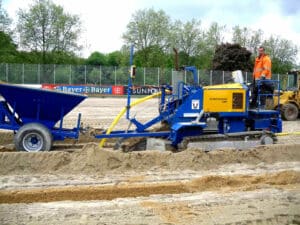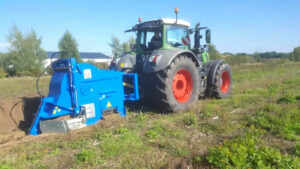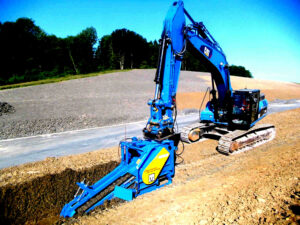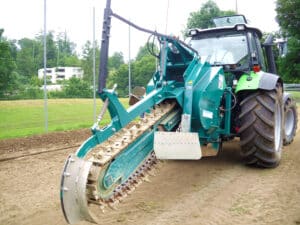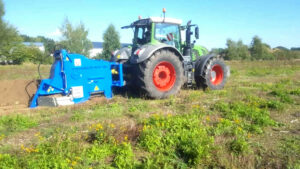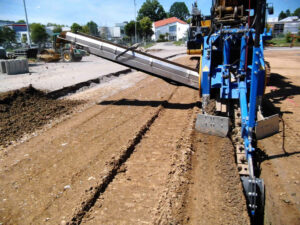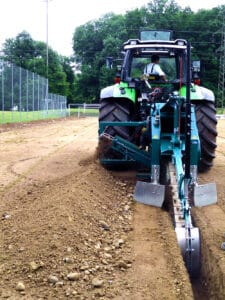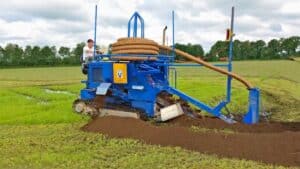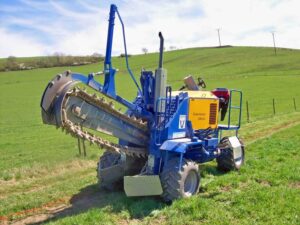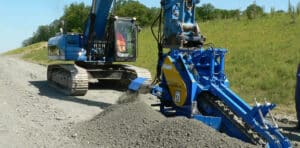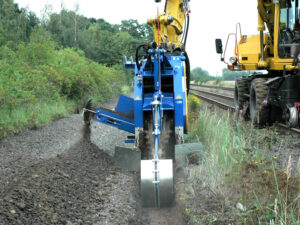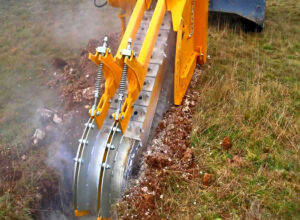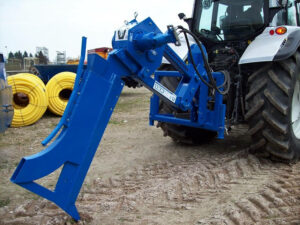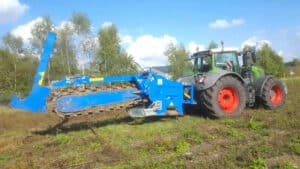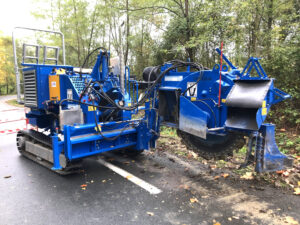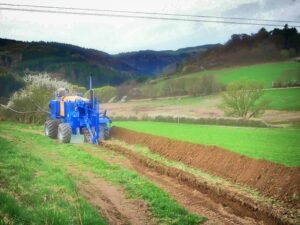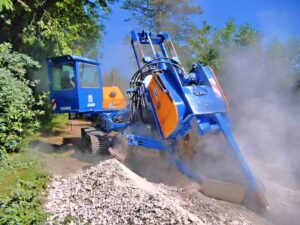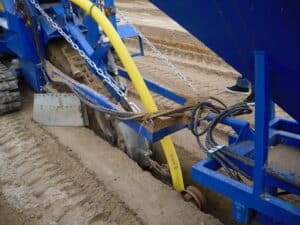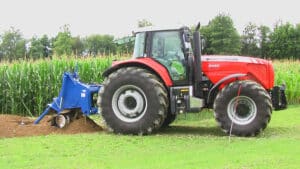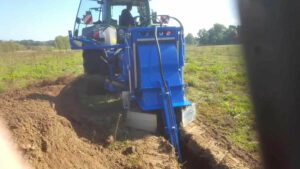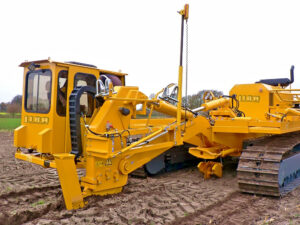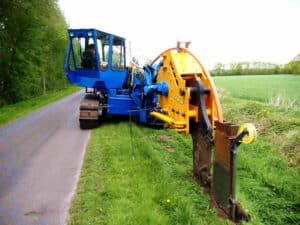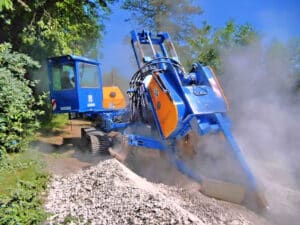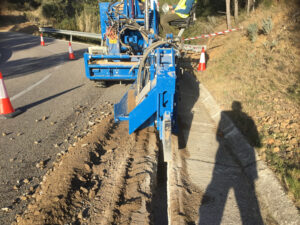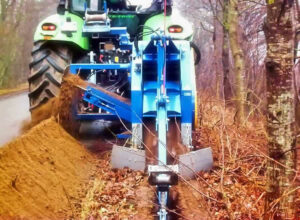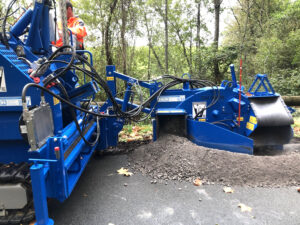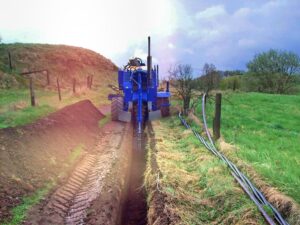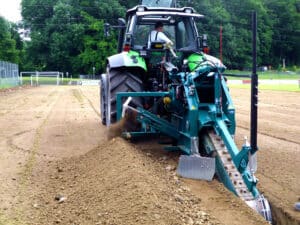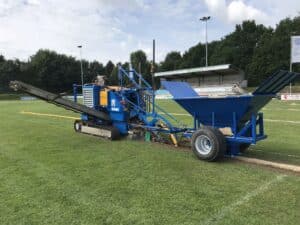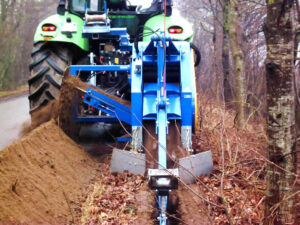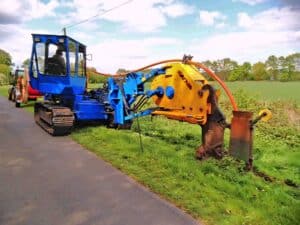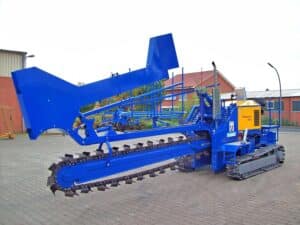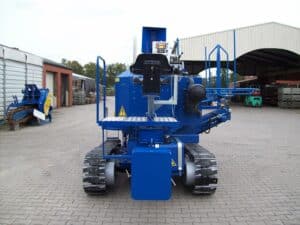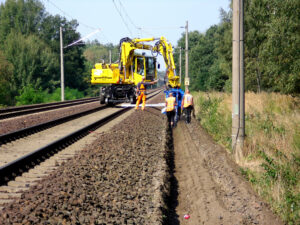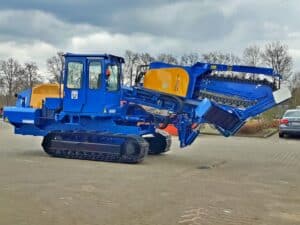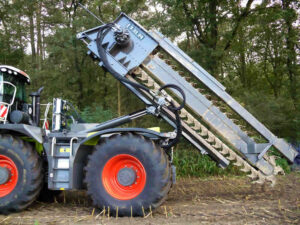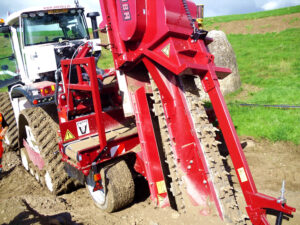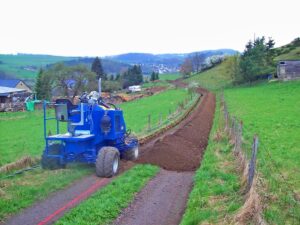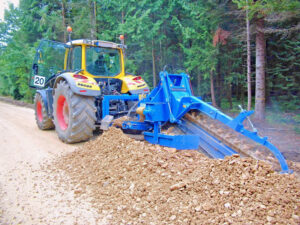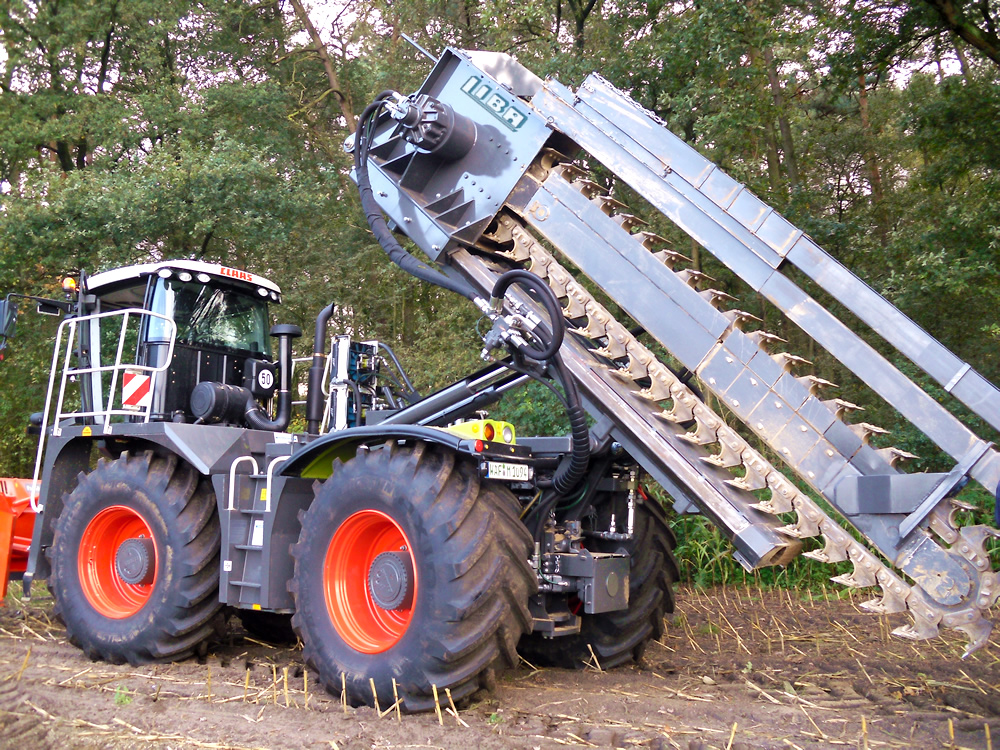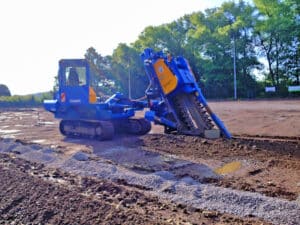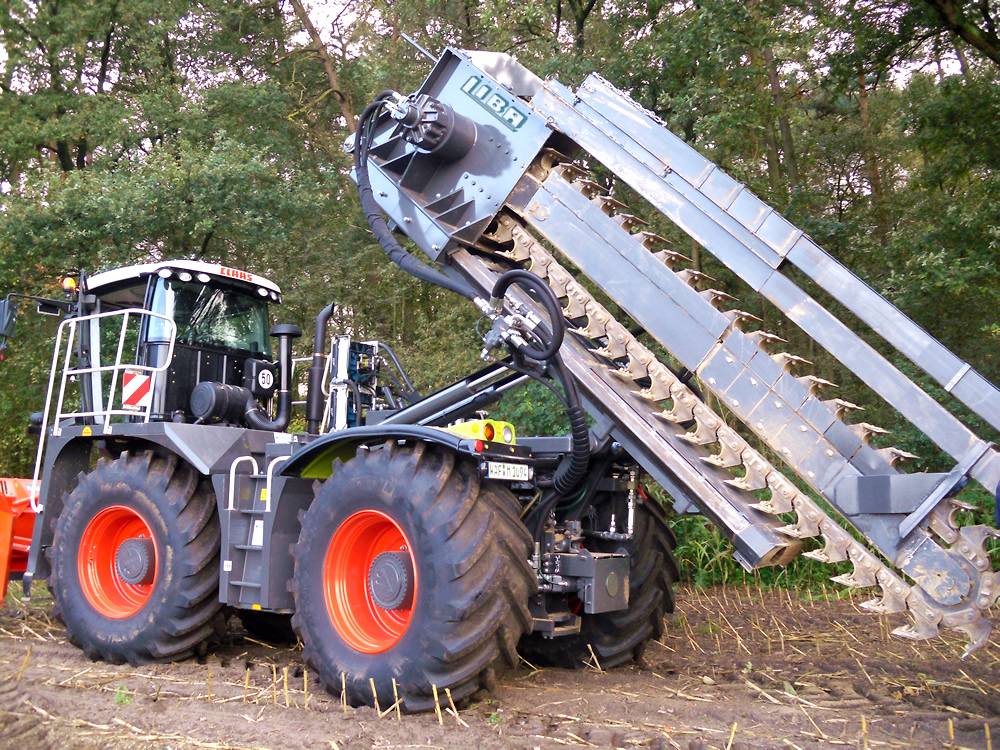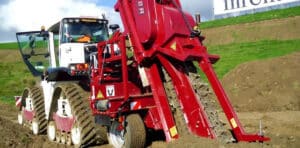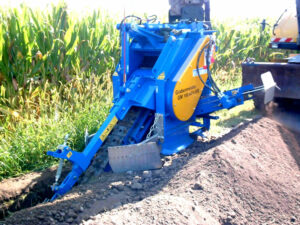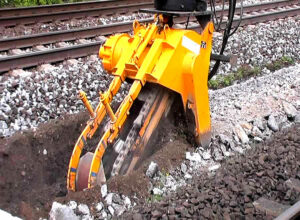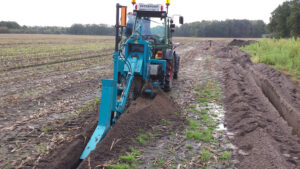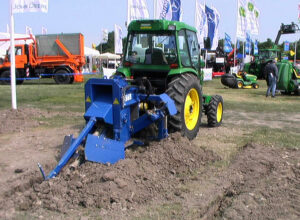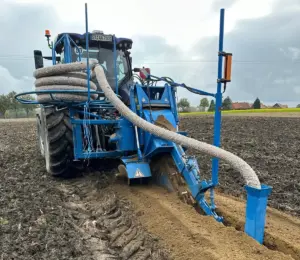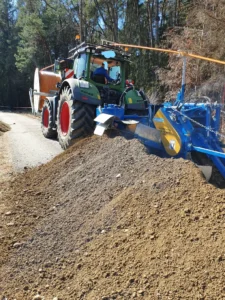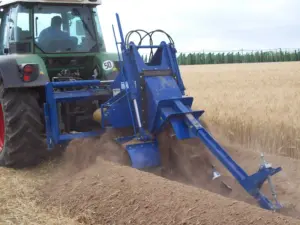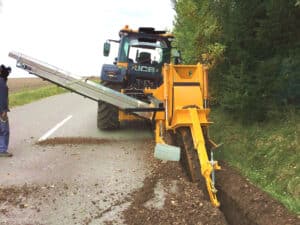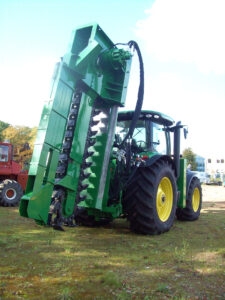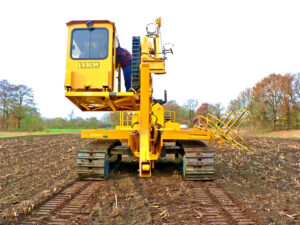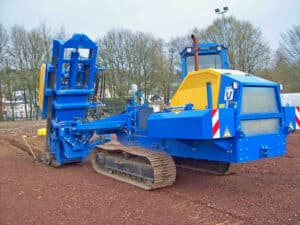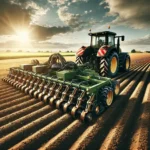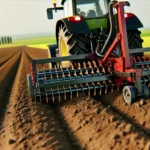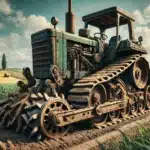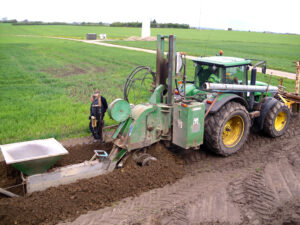 A rotary tiller is an important piece of equipment for agricultural soil cultivation. It is used to break up, loosen and mix soil. It has a wide range of uses, from seedbed preparation to the maintenance of gardens and green spaces. Due to its robust design and versatility, it is indispensable in agriculture and horticulture.
A rotary tiller is an important piece of equipment for agricultural soil cultivation. It is used to break up, loosen and mix soil. It has a wide range of uses, from seedbed preparation to the maintenance of gardens and green spaces. Due to its robust design and versatility, it is indispensable in agriculture and horticulture.
Functionality and areas of application
The rotary tiller is attached to a tractor. Rotating blades or tines work the soil. It can also loosen compacted soil, crush stones and prepare the soil for sowing. A rotary tiller is particularly useful on heavy soils, as it not only loosens the soil, but also removes weeds and distributes organic matter.
Typical areas of application:
- Agriculture: Preparing the fields for sowing.
- Horticulture: Digging up vegetable beds and borders.
- Landscaping: maintenance and preparation of lawns and parks.
Advantages of the rotary tiller
A rotary tiller increases the efficiency of soil cultivation. Compared to other methods, such as plowing, the tiller provides deeper and more even soil mixing. This improves water retention and aeration. This promotes plant growth and increases yields. The time saved is also an advantage. Large areas can be worked quickly with a rotary tiller. This is particularly helpful in agriculture and horticulture. Modern tillers often have additional functions such as depth adjustment or side shifting to work more precisely and efficiently.
Types of rotary tillers
There are different types of rotary tillers, which should be selected depending on the area of application and soil:
- Light tillers: Suitable for gardens or small fields. They are easy to handle and good for loose soils.
- Heavy-duty rotary tillers: Developed for agriculture. They also cultivate stony soils effectively.
- Self-propelled rotary tillers: Particularly suitable for professional use in landscaping.
Maintenance and care
Regular maintenance extends the service life and ensures smooth operation. This includes sharpening the blades, cleaning the tiller after each use and lubricating the mechanical parts.
Purchase criteria
When buying a rotary tiller, you should pay attention to performance, size and robustness. The power must match the area. High-quality materials and a sturdy design are also important. Additional functions, such as adjustable depths, make work easier.

